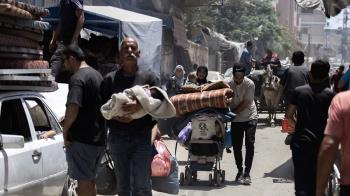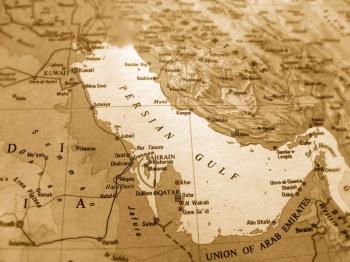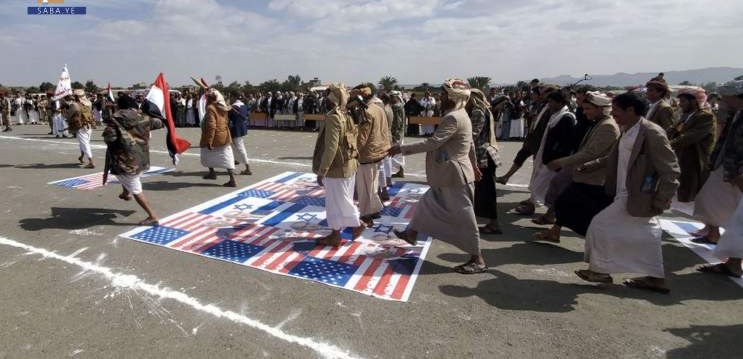Alwaght- On Friday, Yemeni forces for the second time in a week launched a ballistic missile attack on Israel. The attack set off the rocket alerts in several parts of the occupied territories including the Al-Quds (Jerusalem), Tel Aviv and other cities. According to Israel's Channel 14, the missile evaded the US-provided THAAD air defense system before being intercepted by Israeli Arrow long-range batteries. This is the second time the Yemeni missiles manage to cross the American air defenses.
Israel after second Yemeni missile attack
Yemen's missile attack on Friday evening caused chaos in the occupied territories, sending thousands of Israelis to emergency shelters. Reports said a woman was injured when rushing to the shelter. Also, Ben-Gurion International Airport temporarily suspended its air traffic and Lufthansa and some other airlines decided to halt flights to Tel Aviv until May 18.
Other major airlines that have suspended flights to Tel Aviv include Aegean Airlines, AirBaltic, Air Europa, Air France, KLM, British Airways, Iberia Express, ITA Airways, LOT Polish Airlines, Ryanair, Wizz Air and Transavia. In addition, football matches in Israel have been canceled.
Israeli Defense Minister Yisrael Katz condemned the attack from Yemen and pledged a “firm response” to those behind the the attack "inside Yemen and anywhere else."
Avigdor Lieberman, leader of the Israel Yisrael Beiteinu, described the millions of Israelis fleeing to shelters after a year and seven months since the Gaza war began as “unbelievable,” and said it showed a lack of preparedness to deal with this type of threat.
On the other hand, Yair Lapid, the leader of the opposition, said: "Israel cannot sit back and wait for a Yemeni missile to cause a huge disaster or continue to paralyze the economy." Lapid said Netanyahu must stop his "cowardice and procrastination", intensify attacks on infrastructure and missile launch sites, and target missile specialists in Yemen.
"Netanyahu must expand cyber attacks on Yemen's vital systems to paralyze electricity, water, ports and airports. There are many ways to inflict serious damage on Yemen. All we need is an effective government and a prime minister who is not afraid of his own shadow," he was quoted as saying.
Why have US air defense systems failed?
The Yemeni missile crossing the much-vaunted American-deployed THAAD interceptors for the second time in a week showed that this system is incapable of protecting Israel. In this connection, Aljazeera military expert Major General Fayez al-Dwairi explained that THAAD represents the edge of the American military industry and many companies contribute to this project. It is among the most advanced anti-missile systems and only a limited number of it was produced and sent to specific countries. One of the advantages of the THAAD missile system, he added, is that it does not carry an explosive warhead, but works with kinetic energy. That is, when it approaches the missile or target, it automatically explodes, as it is equipped with sensors and a computer that distinguishes between a real target and a fake one. According to military sources, the THAAD radar has a range of 1,000 kilometers.
However, regarding why the American system failed to strike the Yemeni missile, Aljazeera expert said: "The missile that the Ansarallah movement launched towards Ben-Gurion airport last week has a speed of Mach 19 and uses maneuvering techniques, while the THAAD missile as an anti-missile weapon has a speed of Mach 8.5, meaning that the Yemeni missile is twice as fast as the American anti-missile, and therefore the THAAD system was powerless during the recent Yemeni missile launches."
Yemeni has not backed down
Within a week, the second missile attack Israel by Yemen was launched two days after the US media claimed that Washington agreed with Sana'a on halting operations. The report was circulated as propaganda in the American media, and some claimed that Yemen had stopped its missile operations. However, the Friday evening missile attack showed that operations by Yemen will continue and, contrary to some claims, the cessation of Yemeni missile attacks will not include a cessation of attacks on Israeli targets. Ansarullah officials also reiterated the position that attacks on Israeli targets will continue as long as the war in Gaza continues.
On the other hand, the continuation of these attacks shows that Yemen is a major player and a decisive party in the war in Gaza and the Israelis cannot turn a blind eye to a player like Yemen in Gaza war.
Futile attacks
It should be noted that the second Yemeni missile was carried out two days after Israel attacked Sana'a airport, claiming to have destroyed the infrastructure. Before this, Israel had claimed to have attacked sites in Yemen, but the Yemeni attack showed that the Israeli air operations have so far gone nowhere.
It should be noted that the Israeli response to Yemen in general faces many challenges. Since the distance between Israel and Yemen is about 2,000 kilometers, military operations have so far been a difficult job for Israel and its partner, the US. Constantin Grund, director of the Friedrich Ebert Foundation, told DW that attacks on Yemen’s Hudaydah port in recent months destroyed thousands of tons of Yemeni oil, but these attacks have not stopped rockets from being fired from Yemen into Israel. The military expert believes that the geographical distance between Yemen and Israel remains a major challenge for Tel Aviv’s response to Sana'a. While Israeli jets only need a few minutes to reach targets in the conflict with Lebanon’s Hezbollah, it takes Israeli fighter jets hours to reach targets in Yemen. According to Ari Haistein, a security adviser and Amos Yadlin, former head of the Israeli military intelligence, an Israeli attack on Yemen requires careful planning and is very challenging.
Fabian Hainz, a senior military analyst at the London-based International Institute for Strategic Studies (IISS), said:"Despite military superiority, the United States and its allies have not weakened the Yemenis' ability to carry out attacks and resupply their arsenals." Hainz adds that the Yemenis now have very powerful missiles and can fire them from the country's depth. The mountainous nature of Yemeni territory helps them hide their weapons and launchers.
Another issue is that Yemen's communications infrastructure is very basic. An analysis by Sana'a Center for Strategic Studies, a Yemeni think tank, says the Ansarullah forces are using this fact to their advantage. They largely refrain from using digital communications, making it difficult for their enemies to monitor internal Yemeni communications, and making it difficult for the Israelis to easily locate Yemeni military forces.
An expert at Moshe Dayan Center for Middle Eastern and African Studies (MCD) told Israeli media that "Israel's power to strike Yemen is limited... Yemen's impoverished population and underdeveloped economy are insignificant and unimportant targets for Israel, and attacking civilians in Yemen will not achieve anything for Tel Aviv."
Some Israeli media outlets have brought up the ground offensive option against Yemen, but have concluded that in view of the rather unsuccessful military fight of the international coalition led by Saudi Arabia against Sana'a from 2015 to 2023, ground offensive is hardly an appealing option. A ground offensive would be a "suicide mission" that could end in a similar way to the international community's involvement in Afghanistan, Grund said.



























